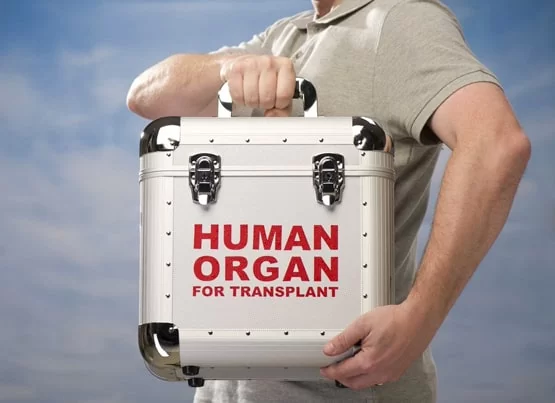For the first time, the Central Government has issued guidelines regarding the transportation of organs so that the battle of life can be won by transplanting organs in the shortest possible time.
The Union Health Ministry has come up with a Standard Operating Procedure (SOP) for the seamless transportation of human organs through various modes of travel like road, railway, air and waterways.
This SOP will serve as a guiding document for those involved in organ transplantation across the country. The Centre’s goal behind streamlining the organ transportation process is to ensure optimal use of precious organs and provide hope to countless patients waiting for life-saving transplants.
Transportation of live organs is a very important activity
Union Health Secretary Apurva Chandra said, “These SOPs are a roadmap for organ retrieval and transplant institutions across the country to ensure adherence to best practices and quality standards.” In fact, when both the organ donor and the organ recipient are in different hospitals within the same city or in different cities, then that live organ needs to be transported between the hospitals and that too in time.
Dr Anil Kumar, Director, National Organ and Tissue Transplant Organization (NOTTO), said that transportation of live organs is an extremely important activity as the shelf life of the organ is limited and its transportation requires coordination between various agencies.
This is included in the SOP
Airlines carrying human organs can request priority take-off and landing of the aircraft from air traffic control. They can also request priority booking and late check-in for health workers transporting the organs. The airport from where the organ is being transported will communicate with the destination airport. On arrival, a trolley will have to be arranged to carry the organ box from the aircraft to the ambulance.
Green corridors can be provided on request from specific authorities or agencies for road transport. A nodal officer of the police department can handle issues related to creating green corridors in each state or city.
- For organ transportation by metro, the metro traffic controller will have to give priority to the metro carrying human organs. Metro security staff should escort the team carrying the organ box till boarding. Metro officials will ensure that there is no delay in security checks. Similarly, SOPs have been issued to facilitate transportation of organs through trains and ports.
- The organ box must be kept upright at 90 degrees during transport and secured with a seat belt for safety. A message “Handle with care” must also be put up on the organ box.
- Organ transplantation has increased more than three-fold in a decade In the last 10 years, the number of organ transplantation cases in the country has increased more than three-fold and most of these cases are of kidney transplantation.
- A total of 18,378 organ transplants were performed in India in 2023, ranking third in the world.
- The number of transplants was recorded at 4,990 in 2013. India achieved another milestone in 2023.
- For the first time, more than 1,000 organs in a year were from deceased donors, donated by the relatives of the deceased.
- The number of kidney transplants in 2023 was 13,426 while there were 4,491 cases of liver transplant, 221 cases of heart transplant and 197 cases of lung transplant. Among living donors, the number of women (9,784) in 2023 was almost double that of men (5,651).
- However, among deceased organ donors, the number of men was 844 while that of women was 255. In 2023, the total number of living organ donors was 15,436 while the number of deceased donors was 1,099.













